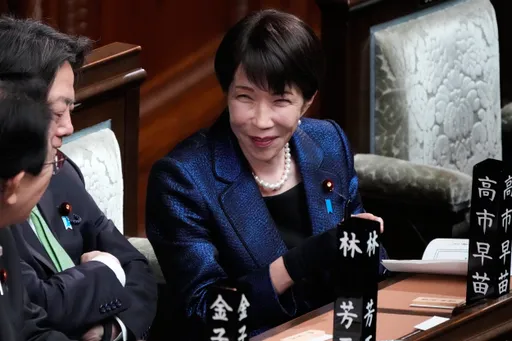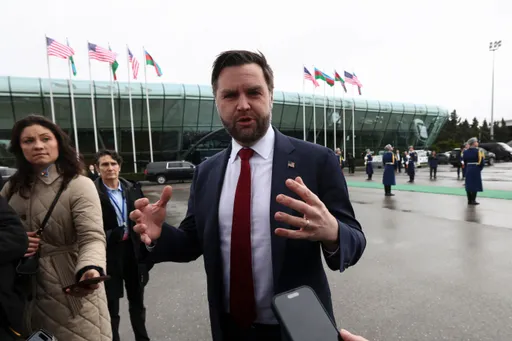The Trump administration last week deployed B-52 bombers to the Middle East this week, to “deter” Iran from retaliating after the assassination of Iranian nuclear scientist Mohsen Fakhrizadeh.
International attention has focused on how Iran may respond to the assassination and its implications, particularly the potential to jeopardise the relations between the Islamic Republic and the incoming administration of President-elect Joe Biden.
Most analyses are looking at the ramifications of this assassination in regards to the immediate months after Biden’s inauguration in January 2021, and how long it will take to renegotiate America’s re-adoption of the 2015 Joint Comprehensive Plan of Action (JCPOA), otherwise known as the “Iran deal,” and the subsequent lifting of sanctions on Iran.
However, this article seeks to understand the Iranian perspective on its nuclear program, by travelling several decades back in the past and a decade into the future.
The assassination may have only killed one man but will inspire a new generation of Iranians to pursue nuclear science, part of an Iranian “nuclear nationalism,” emerging as a result of past national traumas, assassinations of its scientists, and realisations of the fickle nature of American commitments to any agreement on its nuclear program.
Nuclear nationalism
In 2006, Simon Tisdal of The Guardian concluded an opinion piece with an assessment that is worth quoting in the aftermath of Fakhrizadeh’s death:
"[T]he nuclear issue is about much more than nuclear bombs. It is about national pride. It is about western recognition of the legitimacy of the revolution. It is about the wrongs of the past and the aspirations of the future. It is about respect. Their message is clear: the problem is not so very complicated, they say, and neither is the solution. Sooner or later, the US, Britain and the rest will have to stop demonising Iran - and start dealing with it on equal terms."
While not all Iranians may support their government, “nuclear nationalism” is another matter that has been a unifying rallying point within the country. The fact that Iran has overcome the technological hurdles in developing such a program is a source of pride for Iranians. Violations of its sovereignty and the assassination of its nuclear scientists on Iranian soil only inflames this nationalism.
The parties behind the assassination may have sought to weaken the Islamic Republic’s nuclear program, but they have may only used violence to temporarily set back this initiative. Many Iranians I have spoken to have related to me that throngs of students studying other fields have switched to nuclear sciences in the aftermath of the assassination.
Those behind the assassination may have killed Fakhrizadeh, but they have led to the future emergence of hundreds more.
Iran’s WMD traumas
Iran’s nuclear nationalism is also influenced as a result of being a victim of weapons of mass destruction, rather an alleged developer of them.
Both policy elites to the general public in Iran can agree that their nation endured a trauma during the Iran-Iraq War. The war began in 1980 when Iraqi forces invaded and began deploying chemical weapons against Iranian forces by 1983.
One of the few perceptions shared by the majority of Iranians and the government regards Western behaviour in regard to chemical weapons as hypocritical. The West, especially America, was aware of Iraq’s use of chemical weapons but did nothing to discipline or punish the Iraqis.
Baghdad flagrantly used weapons of mass destruction (WMDs) and broke international law. While sanctions are imposed on Iran for its alleged development of WMDs, no sanctions were imposed against Iraq in the eighties.
Afshin Ramezani, an Iranian soldier who fought at the front against Iraq and lost friends in the chemical attacks, said:
"They [the West] talks against genocide and the use of weapons of mass destruction. Well, during the Iraqi invasion, chemical weapons were used against Iranians with the West’s full knowledge. But just because the victims were from Iran, a country that was not a friend of the West, they were considered expendable. No Western country took any active measure to stop the Iraqis."
He concluded, “It shows that the West sees Iranians as subhuman, because if animals were gassed at that scale, I am sure Western animal rights organizations would have done something about it.”
As the eight-year war came to an end, the Iranian former president Ali Akbar Hashemi-Rafsanjani declared that the double standard “taught us that international laws are only scraps of paper.” Decades later, Trump’s withdrawal from the Iran deal ultimately proved Rafsanjani’s assessment.
The assassination not only targeted an Iranian scientist and Iran’s national pride, but also international diplomacy. It was designed to elicit a reaction from Iran that would jeopardise America’s recommitment to the JCPOA.
The volatile situation is another reminder to the incoming Biden administration that reentry into this deal is a priority for early 2021, not just from a diplomatic standpoint, but a humanitarian one.
For the sake of the Middle East regional security, the US re-entering the deal and lifting sanctions on Iran will allow political elites to constructively focus their efforts on the spiralling Covid-19 crisis in their respective nations.























